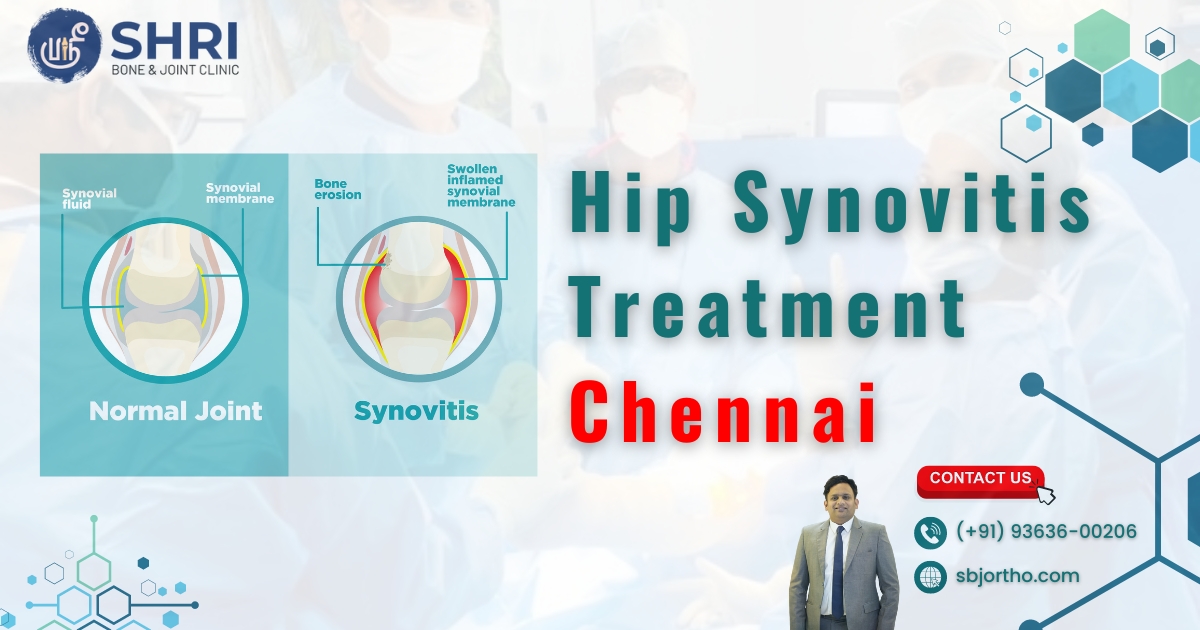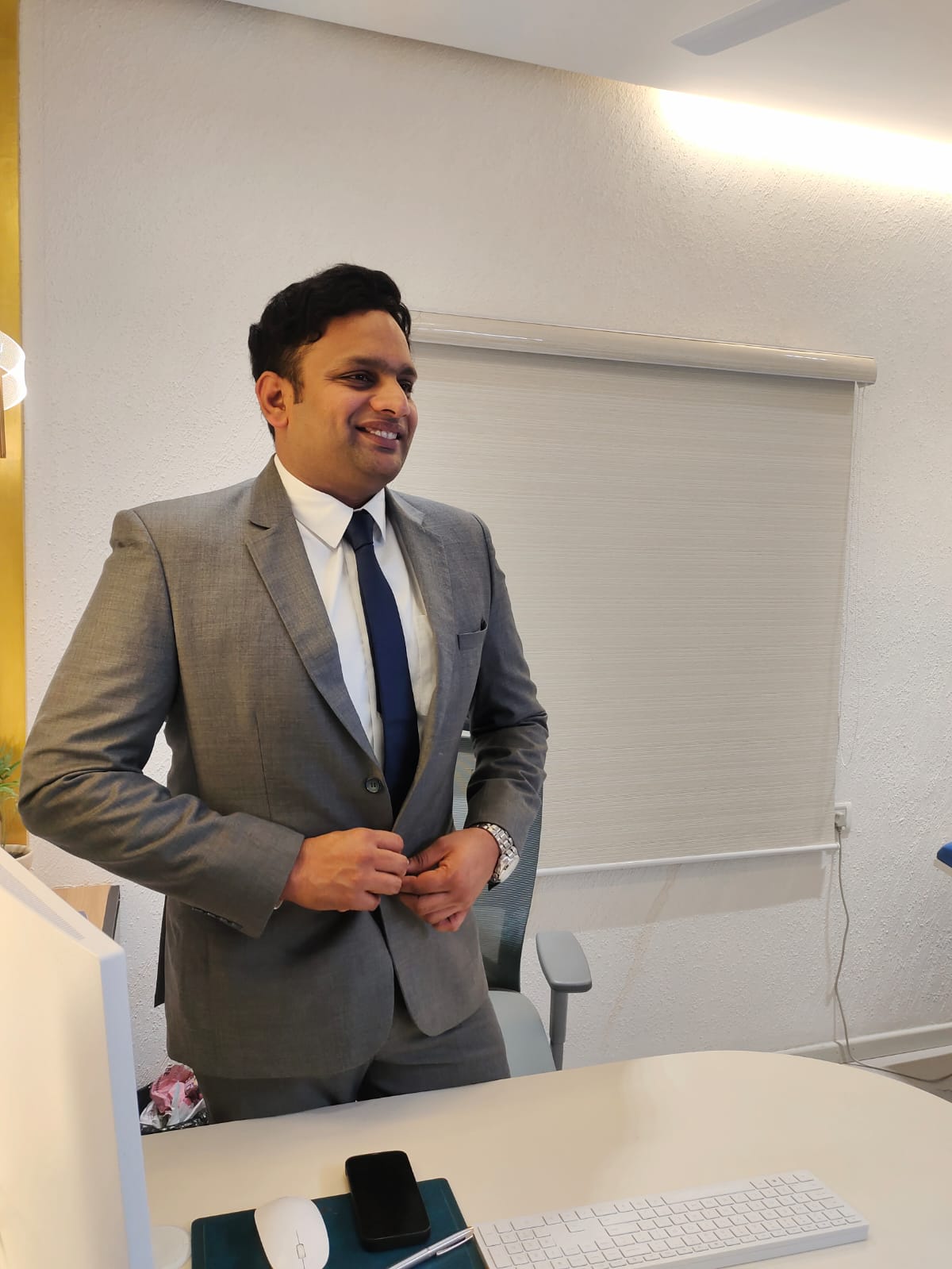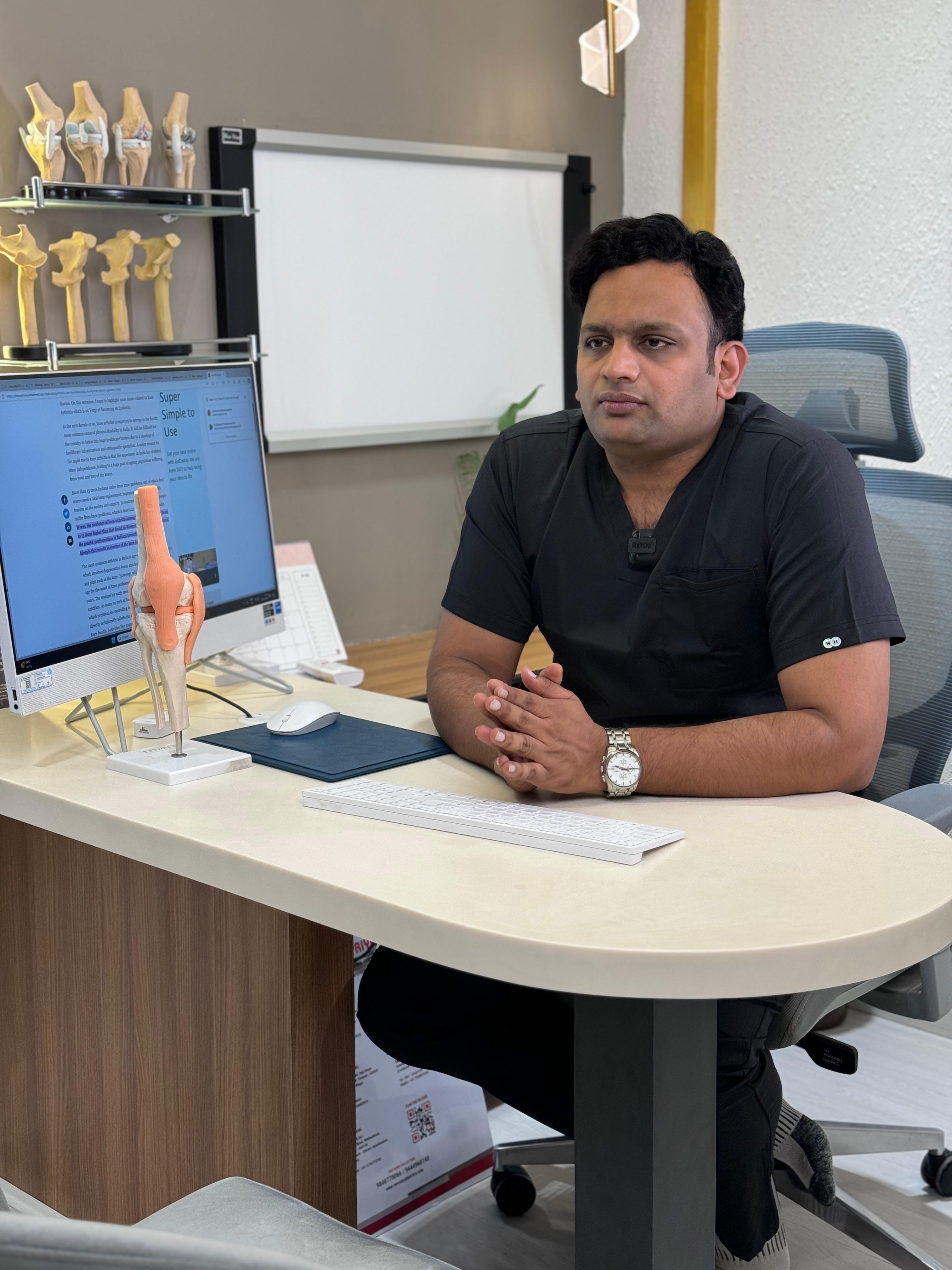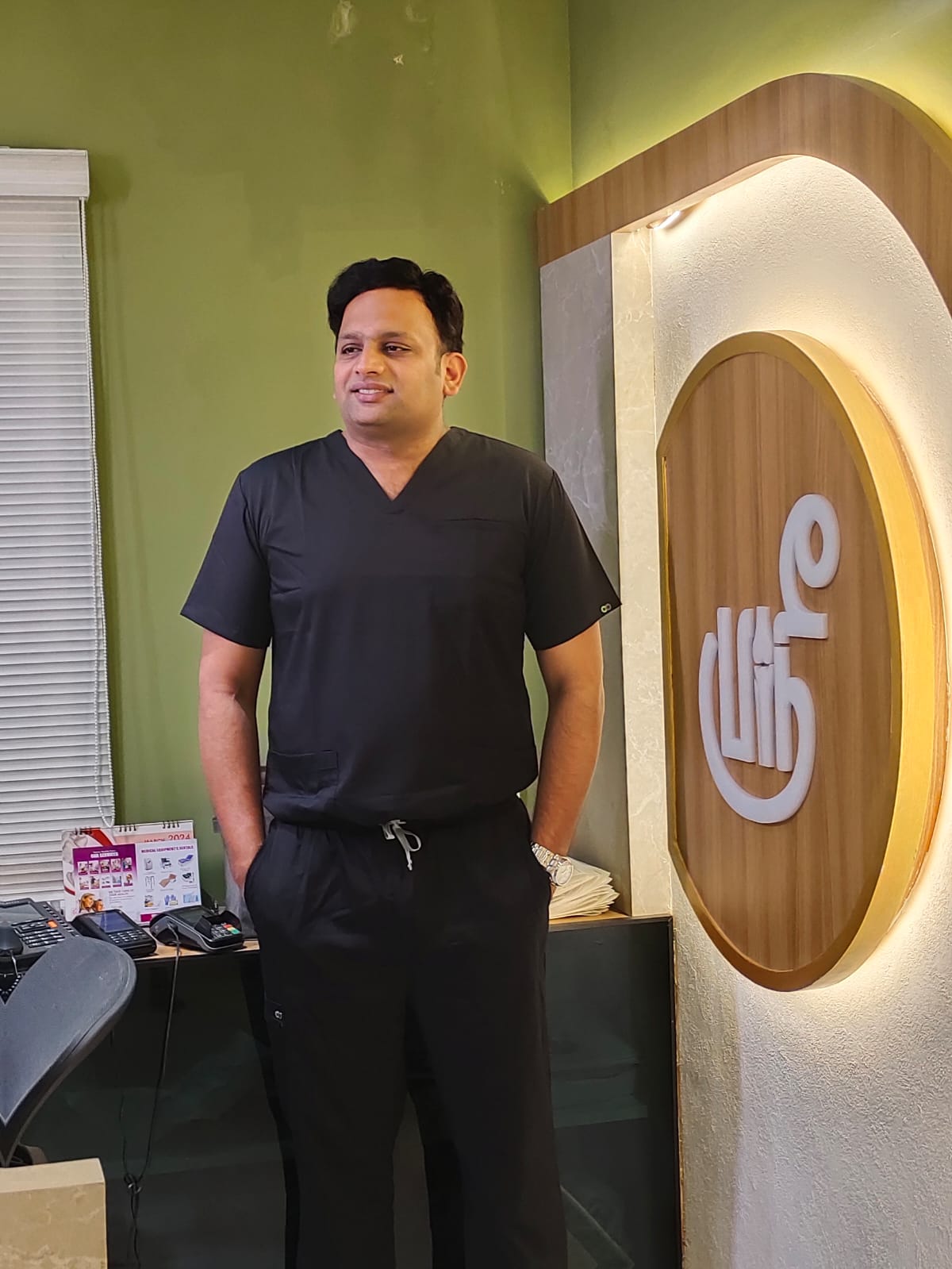What is Hip Synovitis?
Hip synovitis, also known as synovitis of the hip, is an inflammation of the synovial membrane that lines the hip joint. This condition can cause hip joint pain, discomfort during movement, and sometimes even a fever. It’s often associated with other hip injuries or conditions such as labral tears, osteoarthritis, or ligament sprains. In children, it may present as transient synovitis, which is usually short-lived. Treatment typically involves addressing the underlying cause, which may include rest, anti-inflammatory medications, or physiotherapy to restore normal movement and function.
Causes
Hip synovitis, or inflammation of the synovial membrane in the hip joint, can be caused by a variety of factors. Common causes include overuse injuries or repetitive strain to the hip joint, often seen in athletes or individuals engaged in manual labour. Direct trauma from accidents, falls, or sports injuries can also lead to synovitis by damaging the synovial membrane or joint tissues.
Inflammatory conditions such as arthritis, including rheumatoid arthritis, psoriatic arthritis, and gout, are frequently associated with synovitis. These conditions cause chronic inflammation that can affect the synovial membrane. Autoimmune disorders, like lupus, can trigger the body’s immune system to attack its own tissues, leading to synovitis. Additionally, infections, whether bacterial, viral or due to other pathogens, can inflame the synovial membrane.
Risk Factors
Risk factors for hip synovitis include conditions and activities that stress the joints. Arthritis, particularly rheumatoid arthritis, psoriatic arthritis, and gout, is a common risk factor, as these conditions cause chronic joint inflammation. Autoimmune disorders like lupus can also predispose individuals to synovitis by causing the immune system to attack joint tissues.
Athletes and people engaged in manual labor are at higher risk due to repetitive strain and overuse of the hip joint. Traumas such as falls, direct blows, or car accidents can damage the synovial membrane, leading to synovitis. Infections can inflame the synovial membrane, and allergic reactions may trigger synovitis as well.
It is important to note that anyone can experience synovitis, but those with the aforementioned conditions or lifestyles are more susceptible. Early diagnosis and treatment are crucial to prevent potential joint damage and preserve mobility.
Symptoms
The symptoms of hip synovitis can vary but typically include hip joint pain that may be present during exercise and at rest. This pain can sometimes radiate into the knee joint and may be accompanied by discomfort when walking, which can exacerbate the symptoms. Night pain is also a common symptom, and in some cases, individuals may experience a fever.
Additionally, those with hip synovitis may notice swelling and a warm or hot sensation around the affected joint. The condition can lead to stiffness and difficulty moving the joint, impacting daily activities and mobility. It’s important for anyone experiencing these symptoms to seek medical evaluation, as early diagnosis and treatment can help manage the symptoms and prevent potential joint damage.
Diagnosis
The diagnosis of hip synovitis typically begins with a physical examination by a healthcare provider, who will assess symptoms and check the range of motion in the affected joint. The patient’s medical history is reviewed, and they are asked about the onset of pain and other symptoms, as well as any activities that may exacerbate the condition.
Further diagnostic tests may include imaging studies such as X-rays or ultrasounds to visualize the hip joint and rule out other conditions like Perthes’ disease. Blood tests can also be conducted to distinguish synovitis from more serious infections. In some cases, a bone scan or aspiration of hip joint fluid may be necessary for a definitive diagnosis. These steps help in determining the exact cause of the inflammation and guide the subsequent treatment plan.
Immediate Management and First Aid
Immediate management and first aid for hip synovitis are crucial to alleviate pain and prevent further joint damage. The initial step is to reduce joint stress; this can be achieved by resting and avoiding activities that exacerbate the condition. Applying ice packs to the affected area is believed to reduce inflammation and pain. It’s also recommended to keep the hip elevated when possible to decrease swelling.
Medication can play a role in managing symptoms; nonsteroidal anti-inflammatory drugs (NSAIDs) like ibuprofen may be prescribed to reduce pain and inflammation. For severe cases, a healthcare provider may administer corticosteroid injections to quickly decrease inflammation.
In conjunction with these measures, physiotherapy may be advised to strengthen the muscles around the joint and restore normal movement and function. The use of a brace or splint might be suggested to provide additional support and reduce stress on the hip joint during the recovery process. It is important to follow the guidance of healthcare professionals for a tailored treatment plan.
Treatment Options
Treatment options for hip synovitis focus on reducing inflammation and managing pain while addressing the underlying cause. Rest is essential to alleviate stress on the hip joint. Applying heat and massage can provide relief. Anti-inflammatory medications, such as NSAIDs, are commonly prescribed to reduce pain and swelling. In cases of intense pain, steroid injections may be used to quickly decrease inflammation.
Physiotherapy plays a crucial role in restoring normal movement and function by strengthening the muscles around the joint. For persistent or severe cases, a hip arthroscopy might be recommended to remove inflamed tissue. It is important to closely follow the treatment plan prescribed by healthcare professionals and to monitor the condition, as untreated synovitis can lead to joint damage and affect mobility. Always consult with a healthcare provider for a personalized approach to treatment.
Surgical Treatments
Surgical treatments for hip synovitis are considered when conservative methods such as medication and physiotherapy do not provide relief. The primary surgical option is a synovectomy, which involves the removal of the inflamed synovial tissue from the hip joint. This procedure can be performed arthroscopically, which is minimally invasive and involves small incisions and the use of a camera to guide the surgery, or through open surgery, which requires a larger incision and is more invasive.
The goal of a synovectomy is to reduce pain and swelling by removing the diseased synovium that is causing inflammation. It is particularly beneficial for patients with inflammatory arthritis, where the synovium grows excessively and produces too much synovial fluid, leading to joint damage. Recovery from a synovectomy varies depending on the extent of the surgery and the individual’s condition, but it generally includes a period of rest followed by rehabilitation to restore joint function and mobility. It is important for patients to discuss the risks and benefits of surgical options with their healthcare providers to determine the best course of action for their specific case.
Non-Surgical Treatments
Non-surgical treatments for hip synovitis aim to alleviate pain and reduce inflammation while promoting healing and joint function. The primary approach includes rest and avoiding activities that exacerbate the condition. Icing the affected area can help manage swelling and pain, and heat application may also provide relief. Anti-inflammatory medications, such as NSAIDs, are often prescribed to reduce inflammation and pain. In some cases, corticosteroid injections may be administered to quickly decrease inflammation, especially when pain is intense.
Alongside these treatments, physiotherapy is recommended to strengthen the muscles around the hip joint and improve the range of motion. Wearing a brace or splint can also be beneficial to reduce stress on the joint during the healing process. It is important to follow a healthcare provider’s guidance for a personalized treatment plan, as the effectiveness of these treatments can vary based on the individual’s specific condition and the underlying cause of the synovitis.
Rehabilitation and Recovery
Rehabilitation and recovery from hip synovitis are tailored to the individual’s specific condition and the severity of their symptoms. Initially, rest is crucial to reduce stress on the affected hip joint and allow the inflammation to subside. As pain and swelling decrease, physical therapy becomes an integral part of rehabilitation, focusing on exercises that strengthen the muscles around the hip and improve joint mobility. This can help restore function and prevent future episodes of synovitis.
Dietary adjustments and maintaining a balanced diet are also recommended to support overall well-being and recovery. Adequate nutrition can aid in reducing inflammation and promoting healing. Additionally, mental health support may be beneficial, as managing stress and emotional well-being can have a positive impact on physical recovery.
The recovery process can vary in length, often lasting weeks to months, depending on the individual’s progress and response to treatment. During this time, it’s important to avoid high-impact activities that could strain the hip joint. Following the rehabilitation routine diligently can lead to enhanced mobility and an improved quality of life. It is essential to work closely with healthcare providers to monitor recovery and adjust the treatment plan as needed.

Why Choose Shri Bone & Joint Clinic for Hip Synovitis Treatment in Chennai, India?
Shri Bone & Joint Clinic in Chennai is a reputable healthcare facility specializing in orthopedics, offering comprehensive treatment for hip synovitis. Led by Dr. Shriram Krishnamoorthy, a National Board certified orthopedic surgeon with over a decade of experience, the clinic provides a range of services including arthroscopy, joint replacement, and sports injury rehabilitation. The clinic has a team of Orthopedic Specialists in Chennai whose approach to treatment is patient-centric, focusing on personalized care plans that may include medication, physical therapy, and lifestyle modifications.
The clinic is equipped with modern facilities and offers various treatments for hip-related conditions such as femoroacetabular impingement (FAI), labral tears of the hip, and bursitis. They also handle complex fracture management and provide services for osteoporosis and other bone-related ailments. Dr. Krishnamoorthy’s expertise in arthroscopic and reconstructive surgery of the shoulder, elbow, hip, and knee ensures that patients receive specialized care tailored to their needs. The clinic also offers the best treatment for Total Hip Replacement / Arthroplasty with Top Doctors for Total Hip Arthroplasty / Transplant Surgery in Chennai.
Patients seeking treatment at Shri Bone & Joint Clinic can expect a holistic approach to their condition, with treatments that aim not just to alleviate symptoms but also to address the root causes of their hip synovitis. The clinic’s mission is to offer better health care and immediate relief for knee-related problems, and it extends its services to a wide range of orthopedic conditions. With positive testimonials and a high rating from patients, the clinic stands out as a leading orthopedic care provider in Chennai.
Best Doctor for Transient Synovitis of Hip Treatment in Chennai, India
Dr. Shriram Krishnamurthy is highly regarded as one of the best doctors for treating transient synovitis of the hip in Chennai. With a wealth of experience spanning over a decade, Dr. Krishnamurthy is known for his expertise in orthopedic surgery, particularly in joint replacements and sports injuries, which includes the treatment of transient synovitis. His approach to patient care is comprehensive, ensuring that each patient receives a personalized treatment plan that addresses their specific needs and promotes a swift recovery.
Patients appreciate Dr Krishnamurthy for his ability to explain complex medical conditions in understandable terms, his friendly demeanour, and his dedication to providing the highest standard of care. His commitment to staying abreast of the latest advancements in orthopedic treatments and his use of modern surgical techniques place him at the forefront of hip treatment in Chennai. Those seeking treatment for transient synovitis of the hip can expect a thorough evaluation, accurate diagnosis, and a treatment plan that is both effective and empathetic at his clinic, Shri Bone & Joint Clinic in Chennai.
Cost of Hip Synovitis Surgery in Chennai, India
The cost of hip synovitis surgery in Chennai, India, can vary widely based on the hospital, the specific procedure performed, and the patient’s individual needs. On average, hip surgery costs can range from approximately Rs. 1,40,900 to Rs. 1,80,000 for Indian patients. For more complex procedures like hip replacement, the charges may be around Rs. 2,53,380 on average. It is important to consult with healthcare providers and hospitals directly to get an accurate estimate for your specific situation.
How long can synovitis last?
Synovitis can vary in duration, typically improving with rest and treatment over a few days to a few weeks, depending on the underlying cause. In some cases, symptoms may resolve quickly, within 7 to 10 days.
Is walking good for synovitis?
Walking in moderation can be beneficial for synovitis, as it helps keep the joint and surrounding muscles mobile without excessive strain. However, it is important to balance activity with rest and consult a healthcare provider for personalized advice.
How to increase synovial fluid naturally?
To naturally increase synovial fluid, engage in regular exercise like stretching and strength training, and eat a diet rich in omega-3 fatty acids and dark, leafy vegetables. Staying hydrated is also essential for maintaining healthy joint fluid levels.
Does synovitis require surgery?
Surgery for synovitis, such as a synovectomy, is typically considered when nonsurgical treatments like medication and physiotherapy are not effective. It is important to consult with a healthcare provider to determine if surgery is necessary for your specific case.
Can you recover from synovitis?
Yes, recovery from synovitis is possible, often improving with appropriate treatment and rest over a few days to weeks. The outcome may depend on the cause and the effectiveness of the treatment.
Better Health Care is Our Mission
Phone
Shri Bone & Joint clinic
No.14/31, 3rd Avenue Indira Nagar, Adyar, Chennai-600020
Phone: 044 4505 5509






